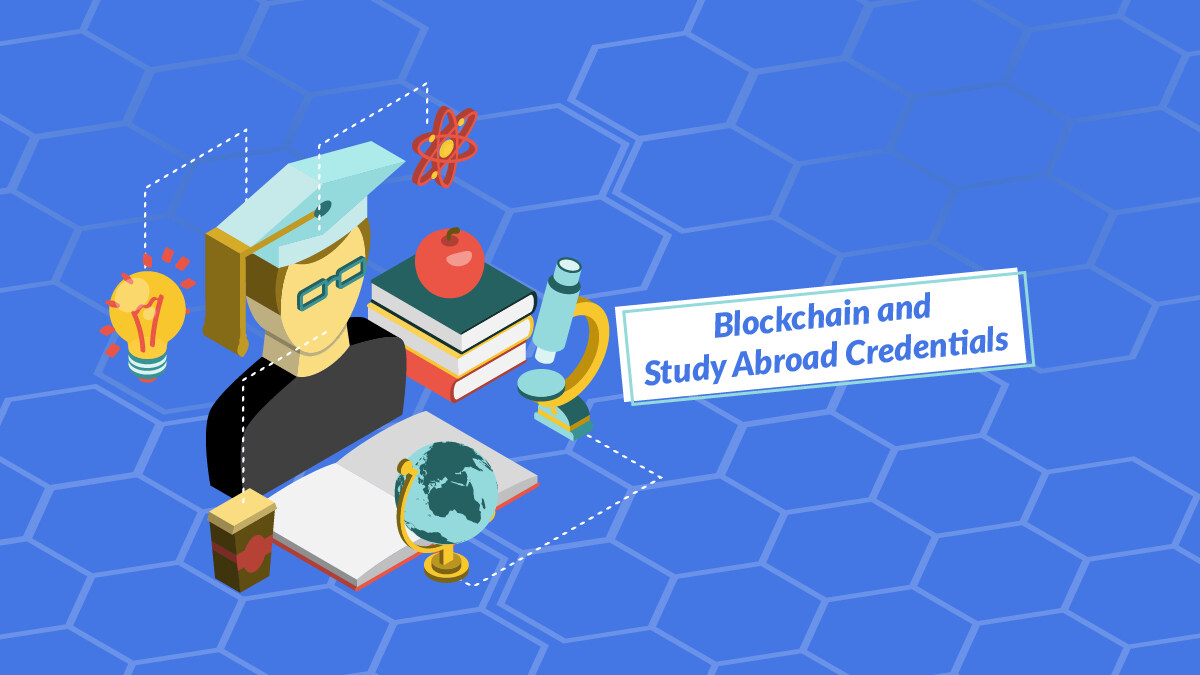Do you remember the time when bitcoins were booming? If not, let us give you a flashback to an era of bitcoins and its craze. Initially, the blockchain community put down its foundation with bitcoins in 2009.
Furthermore, bitcoins earned a reputation for being the best investment option by Forbes. However, blockchain is not limited to bitcoins. Just like any other evolving technology, blockchain in education is also emerging with new opportunities in the education sector. Be it student records or student accommodation, blockchain technology is making strides in transforming the whole experience of studying abroad.
The whole process of issuing, verifying, academic transcripts and credentials has been a daunting task for universities. This is especially important for study abroad students who look for secure authenticated record systems. In addition, when students move abroad, they look for reliable student housing providers and related services for authentic work.
Well, to clear up plenty of doubts you might have regarding blockchain in education, we have penned down this chapter for you. Our blog will revolve around how Blockchain in Education is transforming every aspect of the international education experience. Let’s dive in!
What is Blockchain Technology?
Let’s start with the very first step of breaking down what blockchain technology is and how it works for you. At its core, Blockchain technology is a digital ledger that records transactions securely and transparently. Broken down further, this is a shared database that allows universities and long-term & short-term student accommodation to maintain peer-to-peer networks.
Each transaction is stored in a block and added to a chain that cannot be altered retroactively, ensuring the data’s authenticity. As respect to education, blockchain technology can be used to store and verify credentials which makes it easy for everyone to trust the information. This particular technology also allows international students to have full control over educational records effectively.
Current Challenges For International Students
With respect to international education, it is not limited to classrooms or student rooms but there is more to it. When it comes to blockchain technology for education, there are many challenges you might face. Some of these include:
- The first challenge every student faces is the credential verification process which is time-consuming and complex at times. Students must request official transcripts which can be verified by third-party agencies.
- Further, the market is full of hackers and cyber attackers. You might see many cases of fraudulent degrees and certifications. Universities and student apartment providers also face a challenge in verifying the records.
Blockchain in education provides a comprehensive solution to such challenges by offering a single source of information. As a result, this technology streamlines the verification process by reducing waiting times. Moreover, you can use such documents as proof of identity when applying for student housing or any other course.
Top Ways to Use Blockchain Technology For the Education Sector
Blockchain technology can be significantly used in the education sector, especially by international students. Let’s take a look at the practical ways to use this technology.
Student Record Management
Every year major universities receive thousands of applications that include sensitive information. This is where Blockchain in education technology works the best. With a promise of security and protection, universities can secure student information without the fear of data breaches. Plus, every piece of information stored on the blockchain is distributed across various nodes, making it safe and secure to use.
Student Accommodation: Uses for Verification
Finding affordable and flexible student accommodation is a significant part of international education. Student accommodation providers and websites like Uninist, etc often do the verification on their part. Plus, to verify scholarship proof and other credentials, blockchain technology can be a verified source.
Providers can easily have access to all the documents and student records to approve applications. In short, this streamlined process not only saves time but ensures a quick check-in process.
Smart Contracts
Students, especially international students, might find smart contracts and self-executing agreements in the administrative process. With blockchain, universities can easily upload contracts which reduces manual errors and increases efficiency.
Cross Border Credential Verification
When you decide to pursue international education, you might face the added pressure of ensuring your credentials are recognized. This is where blockchain benefits. Blockchain addresses this issue by allowing universal access to all documents.
Once you store your details on the blockchain, they become accessible globally in a secure way. This way any university or potential employers can verify your records in real time. This feature is also invaluable in ensuring the fulfillment of academic requirements, housing eligibility, and more.
Benefits of Integrating Blockchain in Education
Universities and institutions can utilize this technology to its potential. From storing basic details to post-college verification, blockchain in education has truly transformed the education sector. Some key benefits of integrating blockchain include:
- Enhance security system
- Allow students to move from meetings to a new career path.
- Efficient collaboration
- Universal access at a lower cost
- Skill development and more.
Blockchain technology has the power to transform the education sector and provide the most secure, efficient, and transparent credentials. For students, blockchain in education brings numerous advantages in terms of education, the application process for student accommodation, and more. At last, you can also take advantage of scholarships, housing, and other benefits without dealing with lengthy processes.



